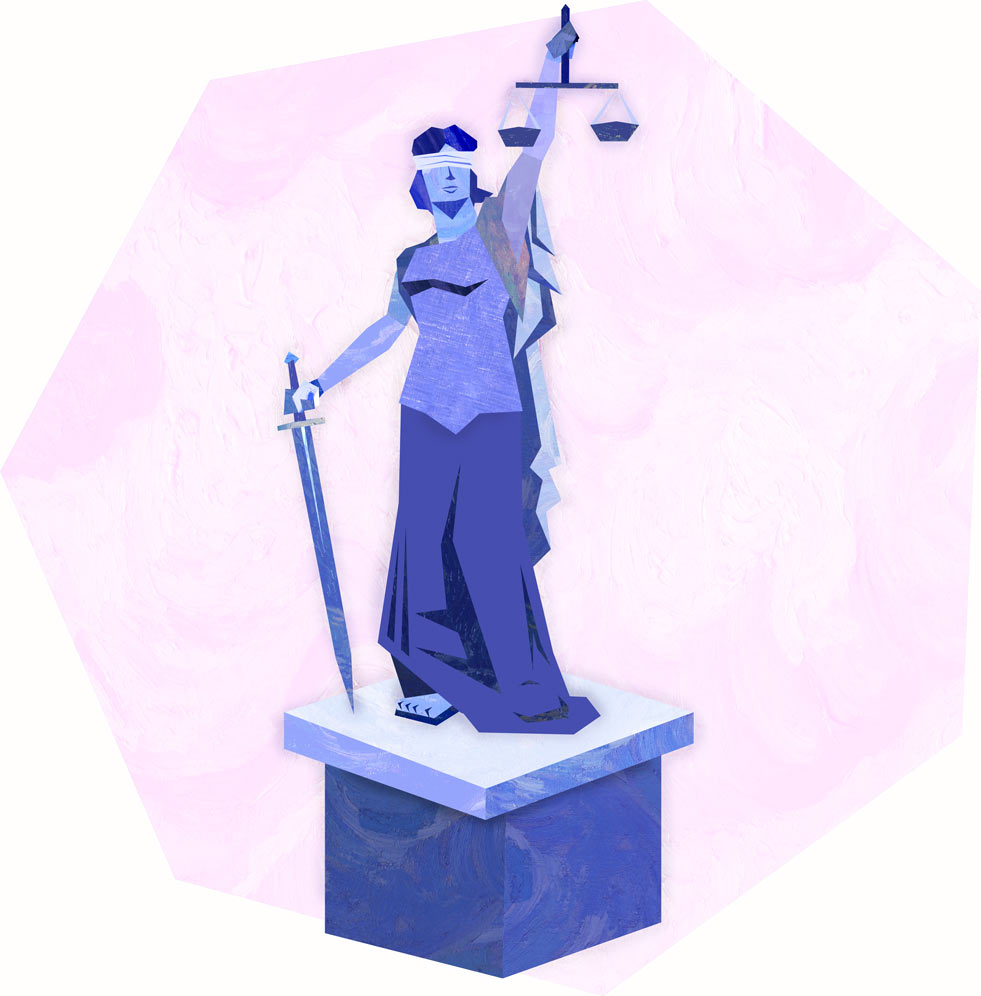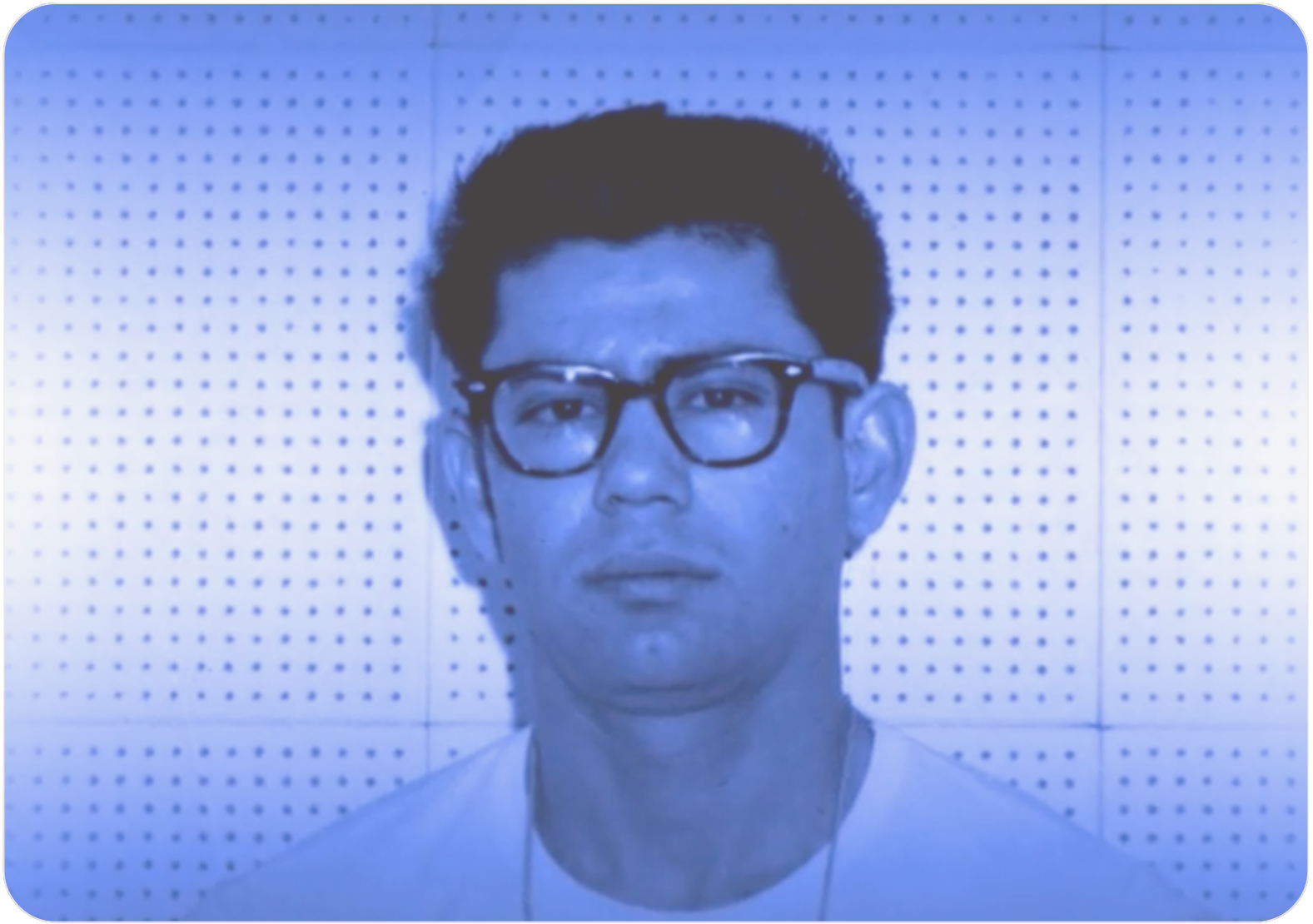This middle school lesson plan is designed to accompany the film “Juneteenth” and focuses on the themes of freedom and citizenship. Students will explore the events that led up to the issuance of General Order #3, while considering the relationship between freedom and citizenship, and why Juneteenth is significant for all Americans.
Juneteenth: The Work and Promise of Freedom
This middle school lesson plan is designed to accompany the film “Juneteenth” and focuses on the themes of freedom – personal, economic, social, and political freedom – and self-determination. Students will examine how African American people worked to win freedom, how some Americans tried to take that freedom away, and how citizens can protect freedom today. Students will also identify the promise of Juneteenth and consider if that promise has been achieved.
Battle for Emancipation and Full Citizenship: A Journey from Dred Scott to the 15th Amendment
This high school lesson plan is designed to accompany the film “Juneteenth” and encourages students to consider the connections between historical events before, during and after the Civil War that charted the course to citizenship for enslaved people in the United States. Students will also examine societal reactions to the emancipation of enslaved people and how the resulting conflicts necessitated the need for the three Reconstruction Amendments.
Sixth Amendment
The Sixth Amendment provides rights and protections to people accused of crimes. These include the right to a speedy and public trial by an impartial jury; the right to be informed of the charges; the right to confront adverse witnesses, and the right to counsel.
Fifth Amendment
The Fifth Amendment addresses the right to a grand jury for serious federal criminal charges, protection against double jeopardy, the right against self-incrimination, the right to due process, and the takings clause.
Justice for All in the Courtroom
In this lesson, students analyze the interplay of processes and procedures that courts use to seat an impartial jury and gain appreciation for the essential role of juries in the justice system. They also explore the responsibilities and limits placed on government by the Constitution in the context of civil and criminal trials.
Understanding the Confrontation Clause
In this lesson, students will explore the fundamental reasons for the confrontation clause of the Sixth Amendment. Students will engage in a simulation and identify the history and evolution of the confrontation clause.
The Confrontation Clause: Crawford v. Washington
The Sixth Amendment’s confrontation clause gives the accused the right “to be confronted with the witnesses against him” at a criminal trial. This video uses the U.S. Supreme Court case Crawford v. Washington to help explain the history and importance of the confrontation clause and why the framers knew it would be crucial to an effective system of justice.”
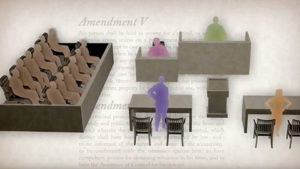
Key Constitutional Concepts: Right to Counsel
The landmark Supreme Court case Gideon v. Wainwright examines the impact that one event can make on the Constitution through the judicial process. This lesson is designed to give students an opportunity to interact with the Constitution
Your Right to Remain Silent: Miranda v. Arizona
This lesson explores the landmark Supreme Court case that made law enforcement the protectors of individual liberty where people are most vulnerable – in the interrogation room.
Jury Selection on Trial
In this lesson, students learn about the process used for jury selection and how the role and responsibilities of government in civil and criminal jury trials are viewed by the Supreme Court. They also reflect on the democratic values, principles, and dispositions of character working behind the scenes.
Key Constitutional Concepts
This three-part documentary discusses why and how the Constitution was created at the Constitutional Convention, explores the protection of individuals’ rights in Gideon v. Wainwright, and examines the limits of presidential power in Youngstown v. Sawyer.
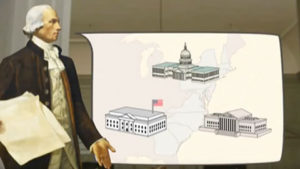
Habeas Corpus: The Guantanamo Cases
One of our oldest human rights, habeas corpus safeguards individual freedom by preventing unlawful or arbitrary imprisonment. This documentary examines habeas corpus and the separation of powers in the aftermath of the 9/11 attacks through four Guantanamo Bay cases: Hamdi v. Rumsfeld, Rasul v. Bush, Hamdan v. Rumsfeld and Boumediene v. Bush.
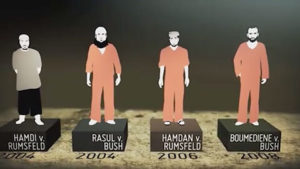
A Conversation on the Constitution with Justice Anthony Kennedy: Miranda v. Arizona
Justice Kennedy leads a discussion with students about the Miranda v. Arizona case, which established that criminal suspects must be told of their Fifth Amendment protection against self-incrimination and Sixth Amendment right to an attorney.
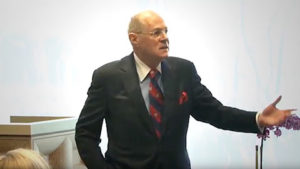
Right to Remain Silent: Miranda v. Arizona
This documentary explores the landmark Supreme Court decision Miranda v. Arizona that said criminal suspects, at the time of their arrest but before any interrogation, must be told of their Fifth Amendment protection against self-incrimination and Sixth Amendment right to an attorney.
Chapter 20: The Rights of Juvenile Defendants
The legal separation between children and adults was still hazy at the time of American independence, especially in criminal law. One central issue concerned the age when children formed consciences sufficient to hold them responsible for their actions.
Chapter 19: The Right to Counsel
Television courtroom dramas have made the assistance of counsel during criminal proceedings one of the most recognizable of all rights guaranteed by the Constitution. We witness countless scenes of defendants refusing to cooperate without the presence of an attorney and of defense lawyers jousting in court with prosecutors to win an acquittal for their client.
Chapter 18: The Right to Trial by Jury
Among all abuses of governmental power, we may fear the secret trial most. Trial by jury guards against this practice, and for this reason juries have long occupied an important place in our understanding of individual rights.
Chapter 17: The Privilege Against Self-Incrimination
The privilege against self-incrimination goes back to the fourth century, but its most dramatic early expression can be found in medieval controversies between the English king and the church. Royal courts used a system of justice that employed public accusations and jury trials.
Chapter 16: The Right to Protection against Double Jeopardy
No rule of criminal procedure is older than the one forbidding the government to try defendants twice for the same offense. It was considered so fundamental to due process that its appearance in the Bill of Rights is not surprising.
Chapter 14: The Right to Habeas Corpus
The refusal to grant habeas corpus was a grievance during the decades before independence, so the revolutionary generation wrote guarantees of the right into both state and federal constitutions.
Chapter 13: The Right to Due Process
In the Magna Carta (1215), the great charter of English liberty, noblemen forced King John to abide by the “law of the land” in his dealings with them. Under this agreement, the king accepted the idea that his power was not absolute.
Chapter 12: The Right to a Fair Trial
The image is an old one in Western history: accuser versus accused, each summoning witnesses publicly in front of a judge to present their different versions of the truth. If the contest is equal and the judge impartial, then we deem the outcome fair and the verdict just, one that speaks the truth.
People for the American Way
People for the American Way says it favors “pluralism, individuality, freedom of thought, expression and religion, a sense of community, and tolerance and compassion for others.” PFAW was founded in 1981 by Norman Lear, Barbara Jordan, the Rev. Theodore Hesburgh, and Andrew Heiskell, in part as a response to the political efforts of religious figures Jerry Falwell and Pat Robertson.
National Center for State Courts
In 1971, Supreme Court Chief Justice Warren Burger advocated the creation of a “central source for the state courts,” which led to the birth of the National Center for State Courts. The NCSC prides itself on “improving the administration through leadership and service to the state courts and serving as an information clearinghouse so that innovations in one court can benefit all courts.” The NCSC does this by conducting research, publishing reports and hosting educational programs about court operations.
